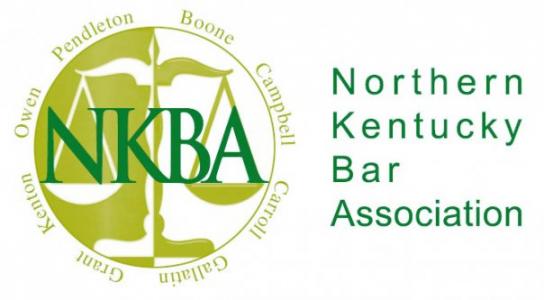Blog
- 2021
- June
- 2020
- August
- June
- March
- February
- 2019
- December
- November
- May
- 2018
- September
- 2017
- July
- February
- January
- 2016
- November
- October
- September
- August
- July
- June
- May
- April
- March
- February
- January
- 2015
- December
- November
- October
- September
- August
- July
- June
- May
- April
- March
- February
- January
- 2014
- December
- November
- October
- September
- Aaron (2)
- accident (1)
- Acena (1)
- adoption (1)
- agreement (1)
- Alimony (1)
- Announcements (4)
- Arnold (2)
- Arnold Taylor (2)
- Attorney (2)
- attorneys (3)
- Auto (1)
- auto (1)
- automobile (1)
- Beck (2)
- bias (1)
- bite (1)
- CCDW (1)
- CHFS (1)
- child abuse (1)
- civil rights (1)
- Civil Rights Act of 1964 (1)
- clean record (1)
- commission (1)
- conceal carry (1)
- conceal weapons license (1)
- conspiracy (1)
- constitution (1)
- construction defects (1)
- conviction (1)
- crime (2)
- criminal (2)
- criminal defense (1)
- David (1)
- David Sloan (1)
- defamation (1)
- department of labor (1)
- Discharged (3)
- Discrimination (5)
- diversity (1)
- divorce (3)
- dog (1)
- DOL (1)
- draw system (1)
- election (1)
- Employment (6)
- Employment Law (1)
- Equal Pay Act (1)
- Estate (1)
- estate planning (4)
- expungement (1)
- Fair Labor Standards Act (2)
- family law (4)
- federal (1)
- federal court (1)
- federal criminal charges (1)
- Federal Labor Standards Act (FLSA) (1)
- felony (1)
- FFCRA (1)
- Fired (2)
- firm (1)
- first amendment (1)
- FLSA (1)
- free speech (1)
- Gary (2)
- Gary Sergent (1)
- government (1)
- grandparent custody (1)
- guidelines (1)
- guilty (1)
- gun permit (1)
- Harassment (2)
- hostile work environment (1)
- hostility (1)
- injured on the job (1)
- injury (1)
- innocent (1)
- intra-corporate (1)
- Jessica (1)
- Jessica Wimsatt (1)
- judge (2)
- judicial (1)
- judicial conduct (1)
- jury trial (1)
- justice (1)
- juvenile (1)
- KBA YLD (1)
- Kentucky (2)
- Know Your Rights (1)
- Labor (2)
- Labor Law (1)
- law (1)
- lawyer (1)
- Lawyers (1)
- legal profession (1)
- liability (1)
- libel (1)
- living will (1)
- Maintenance (1)
- Megan (2)
- Megan Mersch (1)
- Mersch (2)
- Michael (4)
- Michael J. O'Hara (1)
- mine safety (1)
- minimum wage (1)
- motorcycle law (1)
- need attorney (2)
- off-road vehicles (1)
- OHara (3)
- Ohio (1)
- Our attorneys (3)
- Paid Family Leave (1)
- Paid Sick Leave (1)
- parole (1)
- pets (1)
- Planning (1)
- plea (1)
- power of attorney (2)
- Pregnancy Discrimination (1)
- pro se (1)
- probate (2)
- property distribution (1)
- protected class (1)
- race (1)
- recuse (1)
- Repairs (2)
- Ruberg (1)
- school law (2)
- sentencing (1)
- separation (1)
- Sergent (2)
- severance (1)
- sexting (1)
- slander (1)
- Sloan (1)
- social media (1)
- Spousal Support (1)
- state criminal charges (1)
- Sue Cassidy (1)
- super lawyers (1)
- talking to the police (1)
- Taylor (2)
- tender back (1)
- tip credit (1)
- Title VII (1)
- trusts (2)
- victim (1)
- wage and hour (3)
- website (1)
- will (3)
- wills (2)
- wills and estates (1)
- Wimsatt (1)
- workers compensation (1)
- Working off the clock (1)
- workplace discrimination (2)
- wreck (2)
- Young Lawyers (1)
When Allegations of Child Sexual Abuse are Actionable
Abuse of children by clergy and teachers, when reported, often leads to criminal charges against the perpetrator. Too often the survivors of this horrid abuse do not realize they have civil remedies against the perpetrator and possibly his or her employer. While many churches are beginning to disclose reported abuse, this disclosure is often too little too late. If a church for example, learns of abuse, they have a duty to protect future children from that harm. Often, these institutions instead intentionally conceal that information. This was the case with the Diocese of Covington which led to the class action settlement in 1998.
Where the employer of a pedophile was aware of a sexual abuse history of an employee and, nevertheless, hired or retained the employee despite that awareness, then such employer may be liable for the injuries suffered by the child sexual abuse victim. Both Kentucky and Ohio apply a legal theory known as fraudulent concealment to extend those deadlines. For example, where a church or school has hidden from the public their knowledge of a history of sexual abuse of minors by one of its clergy or teachers, the deadline for filing a child sexual abuse claim may be extended beyond limitations periods set out in statutes.
In response to the increasing number of reported child sexual abuse, many state legislatures have responded by extending statutes of limitations. For example, in recent years both Ohio and Kentucky have extended statutes of limitations for childhood sexual abuse claims. Ohio extended its limitations period for filing such claims to twelve (12) years (O.R.C. 2305.111), and Kentucky extended its limitations period to ten (10) years (KRS 413.249). In Ohio, depending on the particular facts of the case, the Supreme Court has applied that extended period to both the perpetrator and the employer of the perpetrator. As it currently stands, Kentucky’s intermediate Court of Appeals applied the extended period only to the perpetrator, and not to the perpetrator’s employer
These types of cases are very fact driven and include complex theories of law. Their nature, coupled with the emotional toll of reliving the abuse, makes the choice of an attorney critical. If you or your child has been a victim of sexual abuse, it is important that you contact an attorney familiar with this area of law. Our attorneys at O’Hara, Taylor, Sloan and Cassidy not only have experience successfully litigating clergy abuse cases needed for your legal matter, but we have the understanding necessary to walk alongside you during this difficult process.







